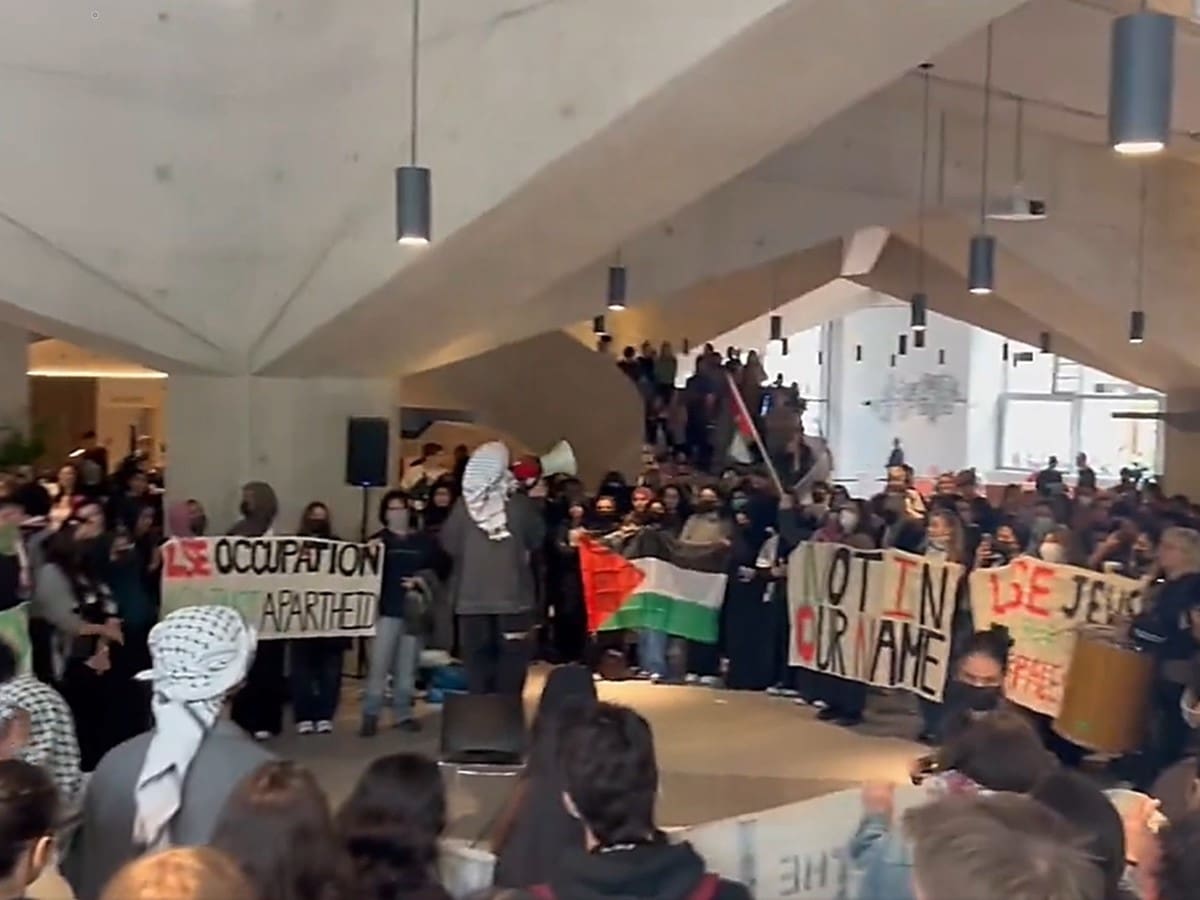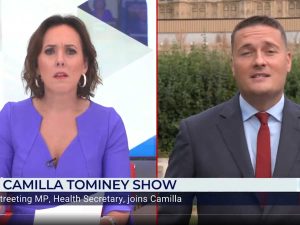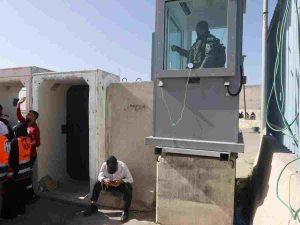The following article is a comment piece from the LSE Liberated Zone
Students have been occupying the London School of Economics (LSE) Bloom Building since May 14, with the intention to remain until the university divests from crimes against the Palestinian people and speaks out against the ongoing genocide in Gaza.
As the Palestine Society-authored Assets in Apartheid report details, LSE currently invests £89m in Israel’s crimes against the Palestinian people, the arms trade, fossil fuels, and the financing of such egregious activities.
LSE administration: trying to shut the camp down
Over the past few days, the LSE administration has shut down Bloom Building operations and attempted to shut down the encampment, citing a private fire consultant’s report to contend that the occupation posed a fire risk and threatened student safety.
However, after initial attempts by security to bar his entry, an independent inspector from the London Fire Brigade examined the camp and concluded that it posed no fire risks which could not be easily remedied; students have since accommodated his suggestions by marking clear fire exits and limiting use of electrical sockets.
In addition, LSE management have threatened student protesters with an Interim Possession Order (IPO).
On 29 May at a school town hall, LSE president and vice-chancellor Larry Kramer told staff that the school was seeking an injunction against protesters. However, under rule 55.21(2) of the Civil Procedure Rules 1998:
an IPO may not be made against a defendant who entered or remained on the premises with the consent of a person who, at the time consent was given, had an immediate right to possession of the premises.
All of the protestors in the encampment are students or staff of LSE and have been granted continuous permission to enter the Bloom building since 14 May. Threats by management also infringe on staff and students’ fundamental right to protest.
Rancid security staff
Members of the LSE security team, on executive orders, have also displayed sexist and Islamophobic behaviour, forcing women to remove face coverings for no apparent reason other than embarrassment and, in one instance, interrupting Muslim campers’ evening prayer. This clearly constitutes a violation of their religious freedoms and a denial of their right to protest on equal terms with their peers.
Security staff have also repeatedly entered the camp to remove student posters by force, and in one instance tore down signs that marked a fire exit.
LSE management’s faux-concern for student safety was further undermined on 2 June, when LSE failed to warn the student encampment of a four-thousand-strong Zionist rally taking place mere dozens of metres from the occupation, in Lincoln’s Inn Fields.
Management were fully aware of this rally taking place, since they had barriers placed on the park side of the Bloom Building, but declined to warn students. This posed a clear threat to Palestinian, Arab, or Muslim students especially, or anybody wearing keffiyehs. One incident of aggression was recorded by a Zionist towards students.
The LSE Liberated Zone is going no where
Student protesters represent a large union of voices across the community calling for an end to LSE’s complicity in genocide.
This is evidenced by the 2,306 votes collected within 12 hours in favour of the LSE Student Union petition on 4 June, requiring the union to seek meaningful engagement with the SMC on divestment, as well as multiple petitions representing over 2,000 supportive voices, including students (in a new petition), staff and faculty, Jewish staff and students, and LSE alumni.
In addition on 17 May, the LSE UCU branch voted unanimous to demand divestment and support for an immediate ceasefire.
The SMC’s attempt to silence and minimise the importance of such a large number of voices raises deep concerns regarding their double standards in how they view members of the community exercising their fundamental rights.




